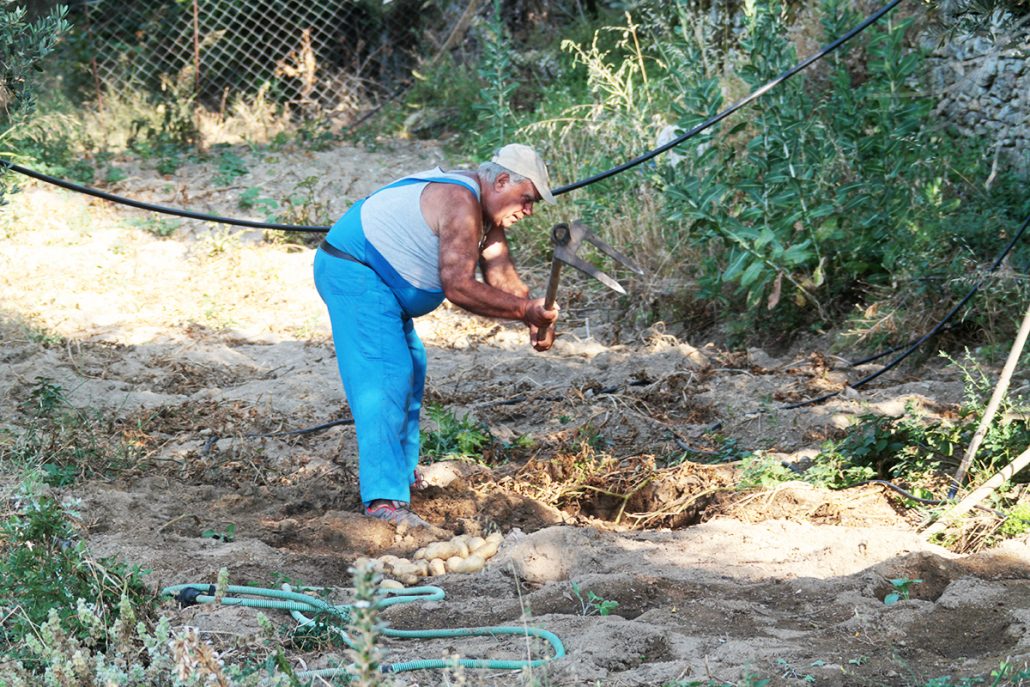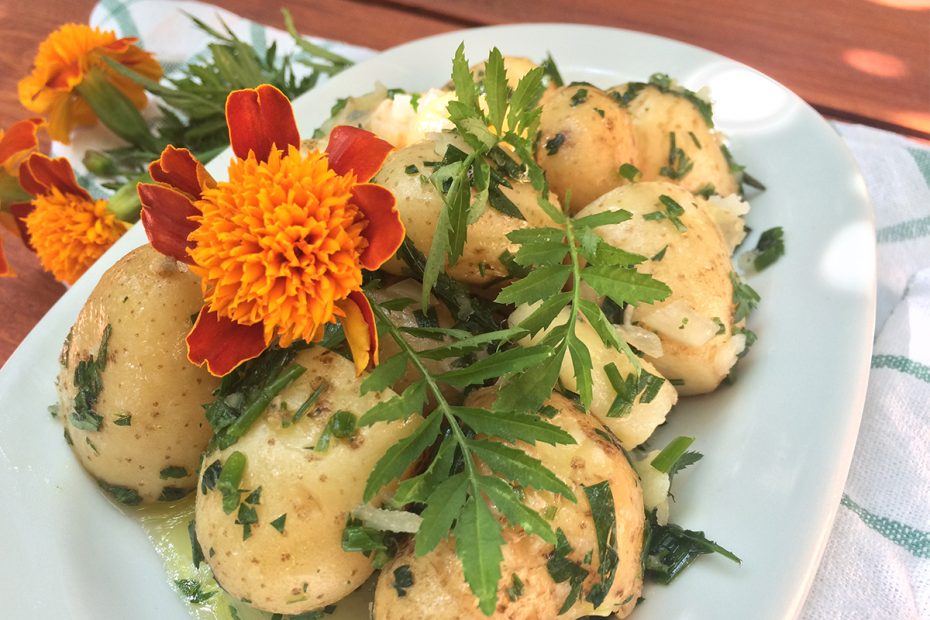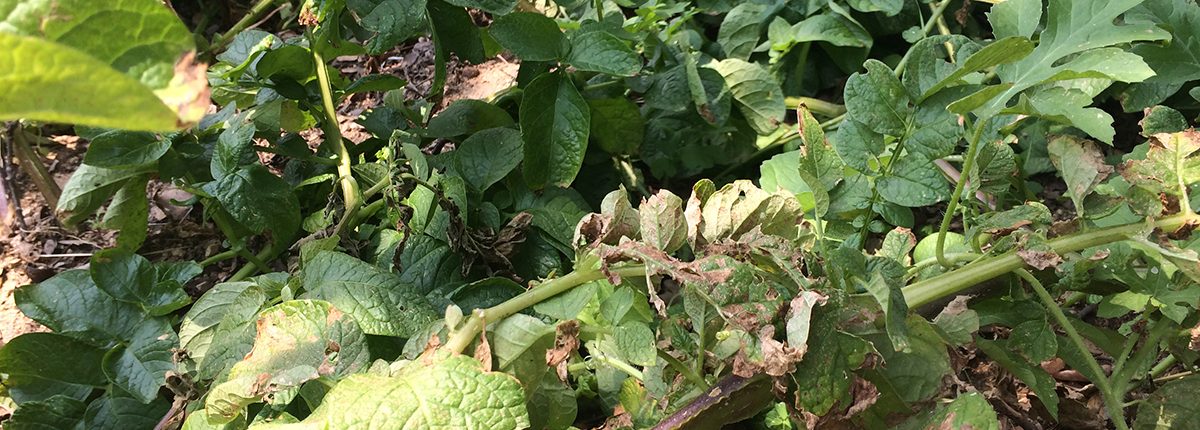The tomatoes are high and climbing, their stiff, tannic leaves silvery under a light but necessary dusting of sulphur, which helps keep the tomato fly at bay. The fruit is a jumble of green and red, smooth or creased, round or oval, depending on the variety. We’ve planted several kinds, including a few thick-skinned, older kinds, in our summer garden on Ikaria.
This is the state of my tomato garden right now, which is bordered by a lively spray of marigolds, planted by design and recurring from year to year. A most munificent flower, the marigold attracts the kinds of pests that dare consider tomatoes lunch, thus pre-empting them, and provides all sorts of edible delights in its own right. Soon enough a few of the marigolds’ spicy leaves will find their way into my own lunch, a simple potato salad. Read on.
On Ikaria, the gardens of longevity, as I’ve dubbed them over the years, are planted traditionally along terraced steps carved into the sides of steep slopes. Arable land has always been wanting here, so people have learned to adapt.
Just below our tomatoes, on another such stone-walled terrace, the potato plants show different signs of readiness: Their green stems have stooped over, their leaves are crisp and sun-baked and the plants’ tops splay across the dirt in loose, leafy webs.
My neighbor, Stefanos, taught us how to plant and harvest potatoes. My husband, a good student, the family gardener and digger of potato gold, proudly hoes them to the surface and offers them to me for inspiration. Caked with dirt and freckled here and there with tiny black eyes, their pale papery skins emit a subtle earthy perfume that promises imminent pleasure. I already have the recipe in mind, simple but delicious: an Ikarian potato salad with garden chives, the greenest, crispest parsley, also home-grown, and those marigold leaves.

Ikaria: Stefanos harvests potatoes
While tomatoes are the stuff of summer’s bounty, savored fresh in countless salads, and sometimes, if one is industrious enough, pureed and frozen, or sun-dried, or stewed into sauces all for later use, potatoes are a staple savored all year long.
On Ikaria, where diet has come under the magnifying glass of medical research as scientists try to uncover the secrets to these Blue Zone Greek islanders’ longevity, the potato is an important food and has been for at least a century. To an American or Western European, so much potato love might sound ironic.
The much-maligned spud, root of so much obesity in the United States, mainly because of the way Americans eat potatoes–baked and brimming with fatty cheeses, butter, bacon bits, salt and sour cream, or fried, or mindlessly devoured as chips—is revered as a life-giving food, one that’s staved off hunger, offered quick nutrition to families all over the island, and is all around delicious thanks to the island’s ample water, good soil, and temperate climate, an environmental trinity particularly conducive to growing tasty taters.
There are two potato harvests on Ikaria, in April and in August, and we are reaping the latter as I write. Friends in their 80s on the island, when asked, recall two older varieties, the Cretan type and the French type, the former spotted with black eyes and the latter better suited to boiling.
Potatoes are a great source of many good vitamins and minerals. They are packed with vitamin B6, which helps protect the heart, builds cells, and energizes brain and nervous system activity; Potassium, copper, manganese, phosphorous and dietary fiber are some of the other invisible but good things to be found in the humble potato. Potatoes of course are also a bountiful source of complex carbohydrates, important as a source of energy for the body, which are released slowly into the bloodstream, thus reducing over eating.
So, as those old, spry, alert Ikarians instinctively know, there’s nothing about which to malign the potato, so long as you cook it in ways that are healthful.
On the island, classic Greek recipes for roasted potatoes abound, seasoned with rosemary, garlic, oregano, thyme, and savory; locals hanker after the spud pan-fried in olive oil and sprinkled with potent local oregano; but more than anything, Ikarians consume potatoes in lovely simple salads, embellished with garden cukes, tomatoes, purslane, another incredibly nutritious plant, pungent onions, capers or pickled sea fennel (called kritamo), and, of course, olive oil. My preferred local salad is one of my own invention, boiled spuds in their skins, olive oil, sea salt, chopped chives, parsley and, coming full circle in my garden, more than a few of those spicy, feathery marigold leaves. Find the recipe here.







